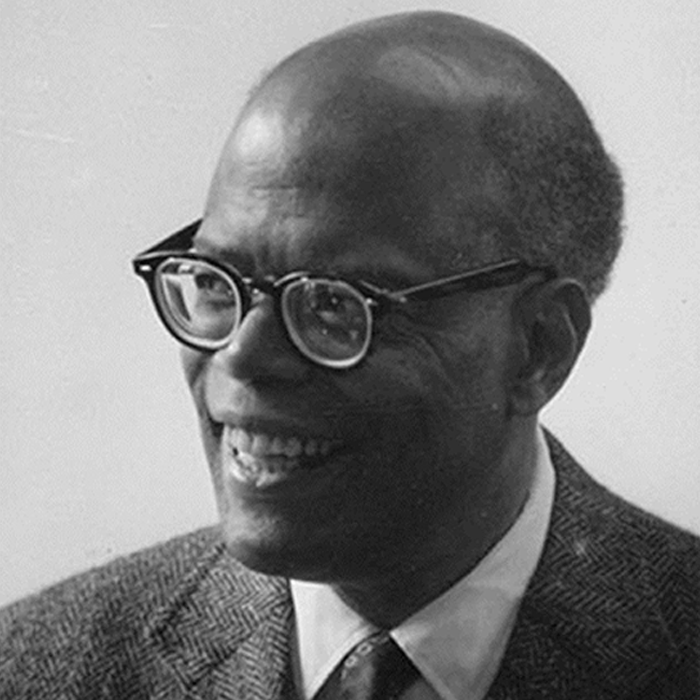About Lewis
On January 23rd, 1915, Arthur Lewis was born in St. Lucia to his parents, George Ferdinand Lewis and Ida Louisa Lewis. He was their fourth child. His parents were migrants from Antigua who worked as school teachers. Lewis’ brilliance was cemented from his early years. In his account of his early years, he has explained how an ailment forced a brief hiatus from formal schooling. During that time, he was taught by his father and this instruction placed him at an advanced stage. This period of home schooling facilitated his acceleration from grade 4 to 6 upon his return to the classroom. At the age of seven, Lewis had the unfortunate experience of losing his father. He credits the family’s success to his mother’s hard-working and disciplined nature as well as her loving and gentle demeanour.
Lewis finished school at the young age of 14 and proceeded to work as a clerk in the civil service. In 1932 he sat the examination for a St. Lucian scholarship to gain entry into a British University. Faced with limited opportunities both in Britain and the Caribbean at the time, Lewis decided to pursue a Bachelor of Commerce degree at the London School of Economics (LSE), which included Economics and Statistics. Despite having no knowledge of Economics, he was successful and graduated with First Class Honours in 1937. He was also awarded a PhD scholarship in Industrial Economics from LSE.
The 1940’s and 50’s were pivotal years for Sir Arthur Lewis as his work and achievements solidified his centrality in the field of Economics. In 1948, he became the Stanley Jevons Professor of Political Economy and the Cobden Lecturer at the University of Manchester. Lewis’ leadership was influential in propelling the university to become the leading institution for the study of development economics in Britain. In the 1940’s Lewis was also a member of the Colonial Advisory Economic Committee and this experience exposed him to the intricacies of the colonial government, which certainly influenced his interest and work in the area of Development Economics. He continued to cement his place in the field with the publication of a report on Industrialisation and the Gold Coast in 1953. In addition, in 1954, he published, ‘Economic Development with Unlimited Supplies of Labour’, which is considered to be the most popular of his corpus of work. It is in this publication that he introduces what is known as the ‘Lewis Model’ or Dual Sector Model in his conceptualisation of developing economies. Subsequently, in 1957, Kwame Nkrumah, the Prime Minister of the newly independent Ghana, invited Lewis to work as the nation’s Chief Economic Advisor. Lewis took up the post and got a two year leave from University of Manchester.
In the latter part of the 1950’s, Lewis was at the helm of the University College of the West Indies, in Jamaica. The institution transitioned to the University of the West Indies under his leadership. He made significant changes that led to higher student enrolment and the establishment of Faculties of Engineering, Agriculture and Social Sciences. While at the university, he continued his scholarly engagement with the developmental issues of the region, with the publication of the book ‘Agony of the Eight,’ which is about the collapse of the West Indies Federation.
By the 1960’s, Sir Arthur Lewis had earned his reputation as a leading scholar in the field of economic theory as well as the social and political dynamics of developing societies. This secured him a place at Princeton University as Professor of Public and International Affairs. He also became the first black professor at an Ivy League University. At Princeton, he continued writing, with the publication of many papers and monographs. Lewis returned to the Caribbean in 1971 to establish the Caribbean Development Bank in Barbados and was then appointed as President of the Bank. When he returned to Princeton University, he was appointed to the post of James Madison Professor of Political Economy.
In 1979, he became the first black man and the first person from the Caribbean region to win a Nobel Prize which was shared with Theodore Shultz. In his recommendation of Lewis for the Nobel Prize, the Dean of the Woodrow Wilson School at Princeton University highlighted his pioneering work in the field of Development Economics. Sir Arthur Lewis retired in 1983 and spent his remaining years in Barbados, until his death on June 15th, 1991. He was buried on the grounds of the Sir Arthur Lewis Community College in his homeland, St. Lucia. His legacy is not just evident in the name of the College but is also etched at The Sir Arthur Lewis Institute of Social and Economic Studies at the Cave Hill Campus in Barbados, at the Sir Arthur Lewis Building at the University of Manchester, and most recently, at Princeton, where the main auditorium - Robertson Hall was named after him.
